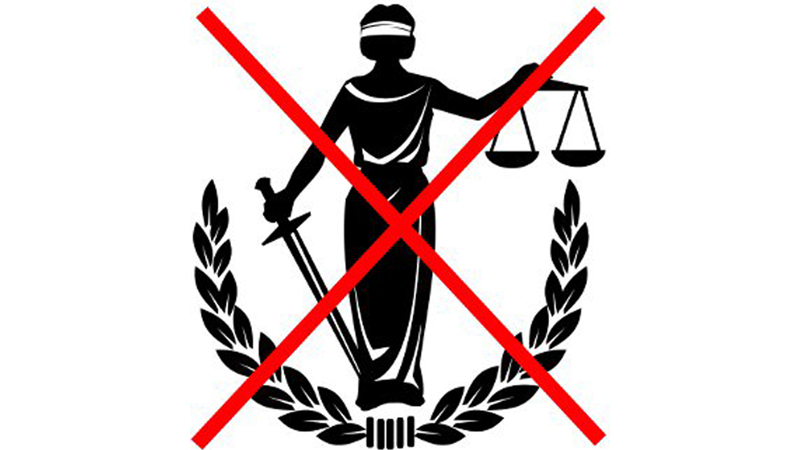The primary function of judiciary in a welfare state is the dispensation of justice to its citizens irrespective of their race or religion. Welfare states ensure that dispensation of justice should be speedy, low cost and available to all as justice delayed is justice denied. When Churchill was questioned about the possibility of losing the world war he replied that justice was still being dispensed in the courts of England.
 The foundation of Islamic system of governance was based on the dispensation of free, speedy justice to all the inhabitants of the state. Islamic judicial system believes in same law for the haves and have nots. The word Adl in Islamic Jurisprudence encompasses all civil, criminal, economic and social issues in the society.
The foundation of Islamic system of governance was based on the dispensation of free, speedy justice to all the inhabitants of the state. Islamic judicial system believes in same law for the haves and have nots. The word Adl in Islamic Jurisprudence encompasses all civil, criminal, economic and social issues in the society.
Judiciary in Pakistan unfortunately has not been able to satisfy the true test of dispensation of justice. It ranges from irresponsible behaviour of the bar to corruption and inefficiency of the bench supported by some laws ensuring denial of justice to the citizens creating unrest in the society against the spirit of welfare state. An attempt is being made to identify the laws due to which the direction of our judiciary is changed from dispensation of justice to disposal of cases resultantly promoting corruption, usurpation, inequality and frustration in the civil society of Pakistan.
The first tool used by the superior courts of Pakistan is the doctrine of laches which means the unreasonable delay in making any claim after a prescribed time. It is based on the maxim — “equity adds the vigilant and not the slumber”. Many aggrieved litigants knocking the doors of the superior judiciary in service matters under the writ jurisdiction are denied justice on the basis of laches.
The second tool used by the judiciary of Pakistan is the doctrine of acquiescence. It means to agree to some act by being silent. It is used in easements. It is a method of acquiring of extinguishing rights through inaction of legal owner. It is used by the exploiters in stoppage of water, air, light, right of way, drainage of against the aggrieved and endorsed by the courts. One fails to understand how such laws can exist in welfare states denying fundamental rights to the aggrieved litigants on one hand and justifying the atrocities of the exploiters on the other.
The third tool used by the judiciary of Pakistan is using the time barred doctrine. The term time barred refers to a legal claim that arises from the lapse of a defined length of time. As time barred means barred by passage of time under statutory period of time. Many legally established offenders are justified through this doctrine.
The fourth tool used by the judiciary of Pakistan is the right of prescription. It is the acquisition of title of property for a prescribed period provided that the possession was neither forcible nor clandestine. It means that the courts would justify the forceful occupation of a property if the occupier with the help of the revenue staff proves that its unforceful possession for a specific period. The fundamental right of property of the citizens of Pakistan is being denied by the so called Qabza Mafia in abetment with the revenue staff and through the disposal policy of the courts.
My question to the parliament of Pakistan is that if it can do away with such limitations through a minor amendment in a section of Income Tax Ordinance, 2001 in respect of unexplained assets then why not in those laws denying dispensation of justice? The litigants under the garb of these laws and many others are denied their fundamental rights by the judiciary.
The parliamentarians on the other hand are busy in their executive portfolios, developmental funds and not in legislation to facilitate the people of Pakistan. The legislators must be urged to legislate on the aforementioned issues to ensure that the courts in the welfare state of Pakistan pursue the policy of dispensation of justice and not the policy of disposal of cases. The slogan of change by the current government should not be restricted to the accountability of the corrupt rather it should be legislation on amendments in laws which facilitate corruption and deny fundamental rights to the citizens of Pakistan. This would be the first step towards the creation of the state of Madina.
The Council of Islamic Ideology of Pakistan is expected to inform the government that “Adal o Insaf” is not time barred according to the teaching of Islam and that all laws placing limitation on the claim for justice are required to be amended.
The judiciary is also expected to ensure provision of fundamental rights to the citizens of the Islamic Republic of Pakistan under its writ, appellate and revision jurisdictions instead of denying them through laches, limitation and many other reasons. The judges should come up with reasons to hear litigants instead of denying them justice in the name of disposal of cases.
The writer is a senior journalist
